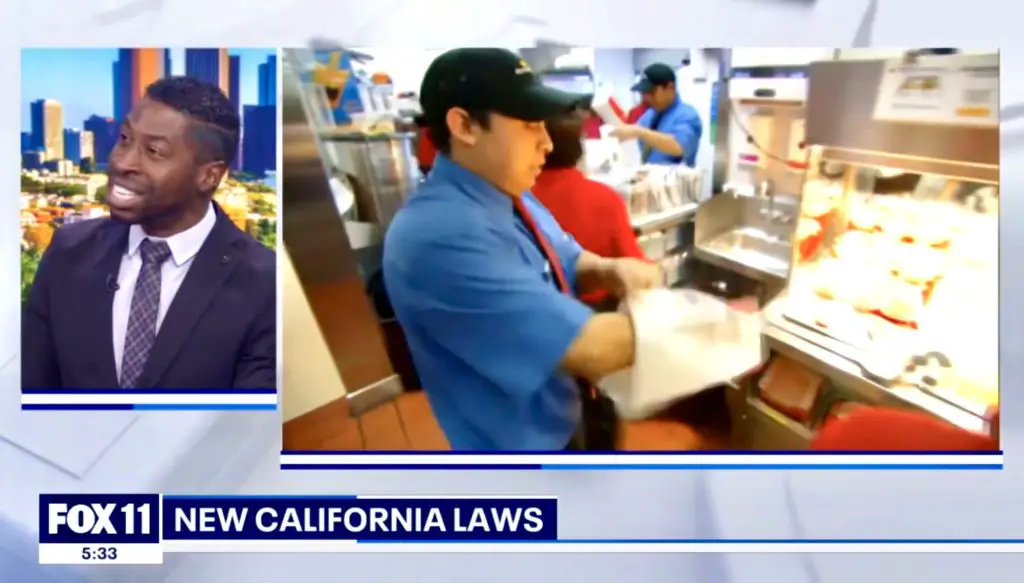In an unprecedented legislative move, California has enacted new laws that will significantly elevate the minimum wage for two key sectors in the state’s economy: fast-food and healthcare. Attorney Ugo Lord is interviewed by Fox LA regarding the impact on California residents.
These regulations, which have been championed and backed by influential labor unions, were signed into existence by Governor Gavin Newsom.
New California Minimum Wage Laws
Starting in April, fast-food workers employed at chains with more than 60 locations nationwide will witness a substantial increase in their hourly wage, set at a minimum of $20. This represents a $4 hike over the general state minimum wage of $16, which came into effect at the beginning of the year.
For healthcare workers, wage increases set to take effect in June will vary based on their specific workplace and role. The new laws stipulate that these workers will earn no less than $18, $21, or $23 per hour.
These industry-specific wage hikes signal a strategic shift in the approach labor unions are taking to secure better pay for workers. Post the Great Recession, such groups led the charge towards achieving a statewide $15 minimum wage, a goal realized in 2016 under the aegis of then-Governor Jerry Brown.
The new laws can stimulate pay increases for an estimated 900,000 Californians, some of whom currently earn above the state’s minimum wage. These wage boosts are being introduced in a labor market marked by intense competition with employers. This can be seen particularly in small businesses facing the dual challenge of recruiting and retaining workers.
Potential Ripple Effects
The increase in the minimum wage for fast-food workers could instigate pay increases for other workers within the broader food industry. In a competitive labor market, companies in the food industry may be under pressure to boost wages.
The wage hikes are not confined to the food industry. The ripple effects of these increases could extend to other sectors as well. For instance, the prospect of better pay in the fast-food industry might lure retail workers, thereby necessitating wage increases in the retail sector.
Upcoming Minimum Wage Measures
In November, a ballot initiative aimed at raising the minimum wage will be available before voters. The minimum wage is also being sought by workers in other industries. For example, Los Angeles has suggested a new rule. It would start a $25 minimum wage for tourism workers before the 2026 World Cup and the 2028 Olympics. By 2028, this will go up to $30 an hour.
The Effects of Higher Minimum Wages
Economists are having a big talk about how these wage jumps could end up. Some people worry that prices for things we buy might go up. But, some people argue that the effect on product prices is not very big. And they mainly impact industries with many workers, like restaurants and fast food.
People who support paying more money say it can help workers move up in their jobs. Furthermore, as they claim, possible bad outcomes, like higher customer prices or helping to increase inflation, are very small. And, if we increase the least amount of money paid to workers, it can greatly improve their living conditions.
What’s Next for California Labor?
As the state moves forward, labor advocates, union leaders, and workers are eager to expand their focus beyond wage issues. They aim to address other concerns, including the potential impact of artificial intelligence on jobs, housing costs, and worker classification.
They argue that wage increases, while important, will only have a meaningful impact if they are accompanied by other necessary improvements, such as stabilized schedules and predictable hours.
As the struggle for fair wages continues, these new laws mark a significant step towards improving the lives of workers in California. The hope is that these improvements will have a sustained, positive impact on the quality of life for workers across the state.

